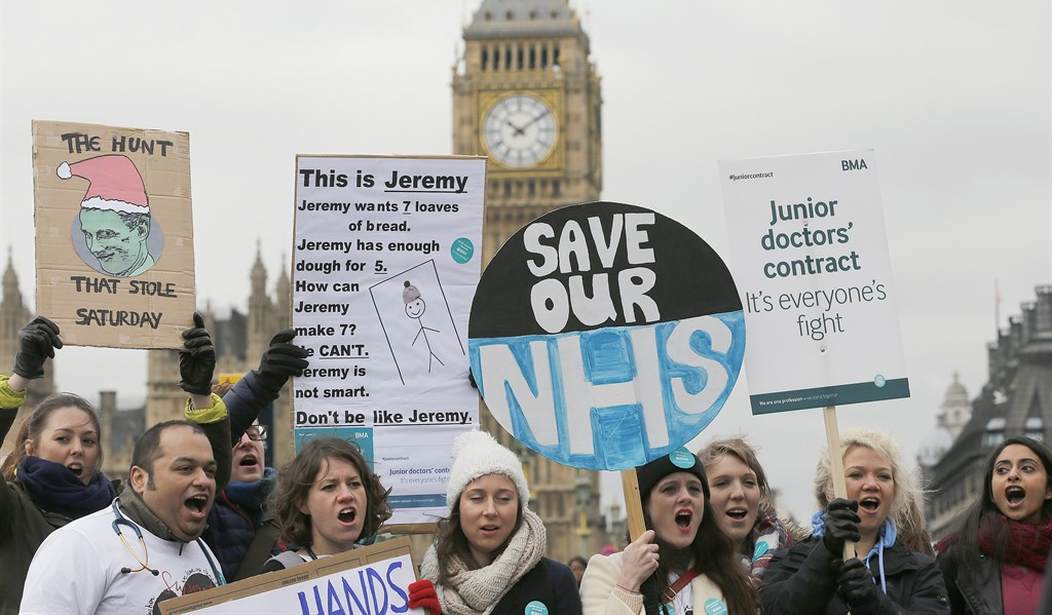Inflation is running at 11% in Great Britain, and the government froze the wages of nurses, ambulance workers, postal employees, rail workers, and other service unions last year, leading to a wave of resignations. The shortages of nurses are especially critical given their pivotal role in health care. Right now, by some estimates, the National Health Service (NHS) is short 40,000 nurses. And those who remain are seriously overworked.
The worst labor unrest in more than a decade has struck Great Britain, and the government is standing firm against the huge pay increases the workers want.
Ambulance workers went on strike yesterday, forcing the government to issue some unusual directives. Citizens were told to “drink responsibly” and avoid “risky activities” during pre-Christmas celebrations in order to avoid a trip to the emergency room. It was also suggested they avoid contact sports and unnecessary car journeys. The government sent 1,200 troops to man the ambulances, but they are untrained in giving critical care.
Last week, the nurses staged a one-day walkout — the biggest work action in the history of the NHS.
And they’re not the only ones walking out. Joining them this month are employees from other essential services including rail workers, mail carriers and airport immigration officers. It’s the largest series of labor actions in the United Kingdom in more than a decade, and presents a major challenge to the new government of Prime Minister Rishi Sunak.
Various factors are driving the strikes, but the proximate cause is inflation resulting from Russia’s invasion of Ukraine and post-pandemic supply chain problems. But parts of the public service sector have been vulnerable for some time. The National Health Service, which provides free care, has been underfunded and hemorrhaging workers for years.
The nurses are demanding a 19% pay raise, which is impossible according to the government. “The government have got to engage on pay because these strikes will escalate otherwise. That is the reality,” said Onay Kasab from Unite the Union.
The government is calculating that public opinion will turn on the unions as people across the U.K. face postponed hospital appointments, canceled trains and travel delays during the winter holiday season. But opinion polls show a high level of support for the workers — especially nurses.
Britain’s health system is under strain from surging demand as pandemic restrictions ease, alongside staff shortages from burnout and Brexit, which has made it harder for Europeans to work in the U.K.
It wouldn’t be the first problem for Sunak who, in his short tenure as prime minister, has managed to tick off both allies and enemies. A recent poll shows that Sunak would actually lose his seat in Parliament if the election were held now.
He still has time to right the ship. But if the work stoppages continue, he may not keep his premiership past Valentine’s Day.










Join the conversation as a VIP Member